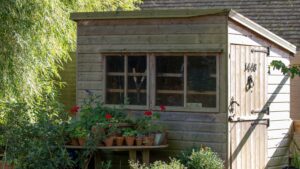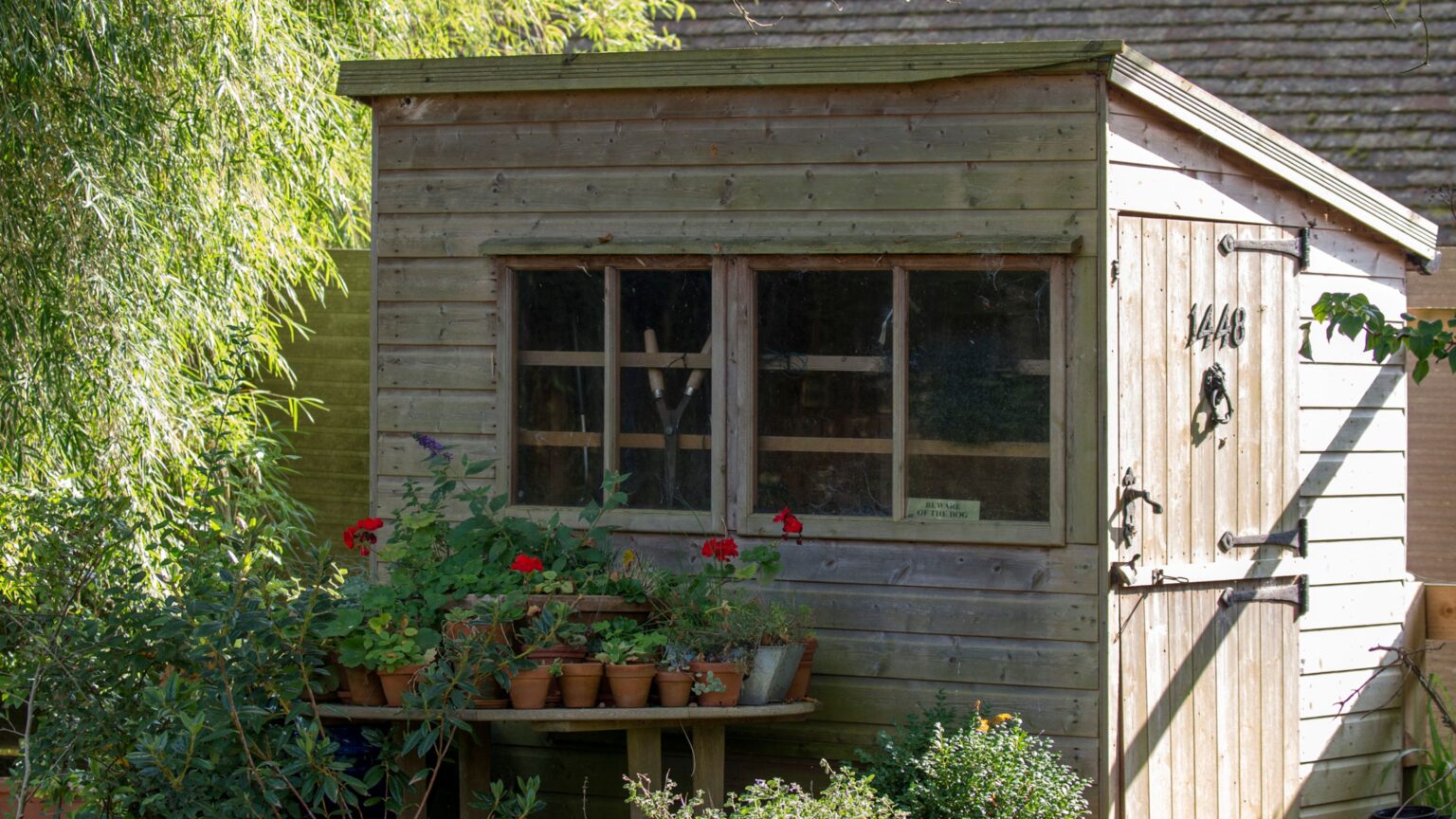Garden experts are warning against storing bird seed in sheds due to the fact in can attract rats to your garden.
Even the biggest wildlife lovers are not fans of spotting rats scampering about the garden. These furry critters have a reputation for destroying your prize plants and spreading disease, which is why many of us want to stop rats in the garden.
If you want to get rid of rats for good, then knowing how to store garden and household items correctly is paramount, and keeping your bird seed in the shed is a big no-no, as rats will be attracted by its scent. So, if you want to know where to store bird seed and learn another way to keep rats away, I suggest you keep reading.
Why you should never store bird feed in the shed
If you have a wildlife garden or just love to see birds visiting your garden, then you’ll probably have supplies of bird feed stored away in your home, and potentially in your garden shed. The bad news is that rats are also very attracted to bird seed, which is why it can also be a struggle to keep rats off a bird feeder.
‘Rats are highly opportunistic and are attracted to any easy source of food, particularly high-energy options like bird feed. Bird feed is extremely appealing because it offers a concentrated source of calories, which rats instinctively seek out,’ explains John Stewart, technical training manager at Pest-Stop.
‘Storing bird feed in a shed is risky because sheds often provide the perfect combination of shelter, warmth and undisturbed conditions for rats to thrive.
‘Even small gaps or weaknesses in a shed structure can allow rodents to enter and set up nests close to the food supply. Once inside, rats can contaminate the feed, damage property by gnawing and increase the risk of infestation across your garden or even into your home.’
Where to store bird seed
It probably feels like a no-brainer to place bird seed in the shed, it makes logical sense after all. But in fact, experts say it should be avoided at all costs. Instead, you should organise your shed, clear the seeds and keep them in your home.
‘The best place to store bird feed is in a sealed, rodent-proof metal container kept in a cool, dry indoor location, like a garage, utility room, or a properly sealed garden room,’ says Sam Jenkinson, garden shed expert at Tiger.
‘Metal containers are ideal because they’re chew-proof, airtight, and block out the scent of the feed, which helps prevent attracting rodents in the first place. Plastic bins may seem like a convenient alternative, but determined rats can still chew through them surprisingly easily.
‘Where possible, choose a location that’s off the ground and away from direct sunlight to maintain a consistent temperature. And make sure to regularly check your containers for any signs of moisture or pests, storing your feed properly is just as important as what you put in the feeder.’
If you can’t store bird feed inside, you must ensure you store it off the floor, as this helps minimise odours that may attract rodents. You should also check for and seal any point of entry that rats can squeeze through.
Bird seed is best kept in your home if possible. However, if you have no choice but to store it in your shed, ensure you follow these precautions to keep rats away.
What you need
Morezi
Morezi Bird Seed and Feed Storage Tin
A lidded metal container is best for storing bird feed as it is harder than plastic for rats to chew through.
READY STEADY DEFEND
Rat & Mouse Repellent Balls
Rats hate the smell of peppermint so keeping these balls near your feed bin can create an unattractive smell that they want to avoid.
Hungry Wings
Premium Wild Bird Food 5l Refill, (5l Bag, Wild Bird Mix)
If rats have got into your bird seed, you’re probably needing to replace is it – this one is perfect for feeding the wild birds that visit your garden.
Read the full article here


